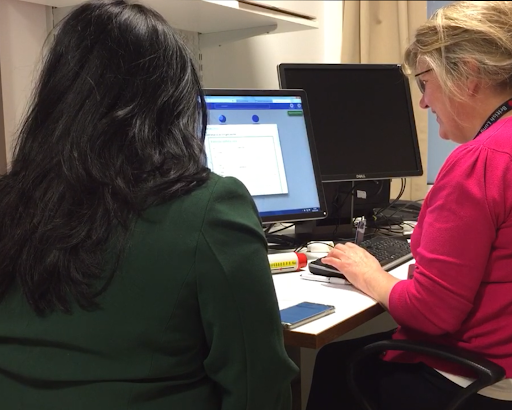SME of the Week: Tiny Medical Apps, creators of the Digital Health Passport
Posted on
DigitalHealth.London’s SME of the Week is Tiny Medical Apps, creators of the Digital Health Passport, a personal health record for young people with long term conditions, initially focused on asthma and allergies. In this blog, Tiny Medical Apps Strategic Partner Manager, Paul Weston, tells us about his experience of working for the company, explores the learnings from their East London pilot and comments on how they are looking to support healthcare services during the COVID-19 crisis…
During 2019 I was exploring the role that health tech was currently playing within the NHS as well as the role it would play in the future. I met Matt and Greg, co-founders of Tiny Medical Apps, at a hackathon – it was a chance meeting but a profound one – I was impressed that they not only had in-depth clinical and NHS IT backgrounds but, most importantly, were delivering on the benefits of digital health to clinicians and patients in a live environment. We worked together at more hackathons on their demonstration platform and later I joined them as the Strategic Partner Manager for the Digital Health Passport Pilot in East London. This opportunity allowed me to use my technical and non-technical skills, working with clinicians and user groups in a live setting. We’re evaluating barriers to adoption and scale so that we can co-design most effectively and using the NASSS (non-adoption, abandonment, scale-up, spread, sustainability) framework to guide us. (https://www.jmir.org/2017/11/e367/ )
East London Pilot
The Digital Health Passport (DHP) was commissioned by Healthy London Partnership to deliver a platform and app that would allow the deployment of digital care plans, remote condition monitoring and access to educational resources for young people with long term conditions. The initial focus has been on asthma, and involved working with leading clinicians and young people across the capital to develop our ‘Minimum Lovable Product’. The DHP was initially launched in October 2019 at two sites in East London: Chrisp Street Surgery and the Royal London Hospitals with Barts Hospital following on in January 2020. An evaluation has been undertaken demonstrating evidence to Tier 2 on the NICE Evidence Standards Framework for Digital Health Tools and presented to clinicians and commissioners from across London. The ‘live co-design’ continues and is now expanding with asthma patients admitted to the wards due to be included next.
Within the patient group those onboarded were positive about the app with a high number being active users of the care plan and remote condition monitoring features. One user summed this up: “The name as a Digital Health Passport is exactly it – you can travel around with it and use it as and when you enter into a service.” We received several useful ideas for future features, some of which may require us to become certified as a medical device.

Clinicians also were highly supportive of the key features – allowing patients access to their care plans at all times on their smartphone was highly prized with one commenting: “This app is just brilliant and could save a life”.
The main challenge during the pilot was recruitment of teenage users – this included a lack of appointments for care plan reviews and high level of ‘Do not attends’. The need for an additional ‘Clinician Portal’ for healthcare professionals to enter care plans into was also a significant barrier to adoption at scale. Ideally care plans would be entered into native GP or hospital software and a Personal Health Record app (PHR) would ‘pull’ the plan via a Local Health & Care Record. Using another portal requires changes to workflow, potential double entry and additional technology to be incorporated within already constrained consultation time.

Reflecting on the pilot, my presence within clinics, providing support and encouragement for the clinician team seemed critical for adoption at this point. The learnings from the process are centered around how it would be possible to concentrate on patient adoption through the PHR app and for the clinician involvement to form part of existing and developing clinical systems. In addition the pilot has highlighted issues around interoperability between PHR’s and Electronic Health Records (EHR).
Moving the Digital Health Passport forward
The Digital Health Passport is fortunate to be part of the Evidence Generation group for Personal Health Records funded by NHSX Innovation & Technology Payments. We will be integrating with Local Health & Care Records (LHCR) in both Greater Manchester and the Yorkshire & Humber regions so these exciting projects will take the findings from East London and build upon the work. An example of this is the need to combine asthma and allergy plans to improve clinical safety (currently a patient gets two paper plans – one for each condition which can be confusing in an emergency). We are lucky to be working alongside experts from Sheffield Children’s Hospital and CYP Medtech to deliver the next version.
TMA Response to COVID-19
As we are all coping with the immediate response to COVID-19 and at Tiny Medical Apps we are looking at how we can adapt and support our clinicians and patients with asthma in the coming months. Key to this is how the Digital Health Passport can support remote care plan reviews allowing patients to self-enter plans into the app but crucially how this can then be validated to form part of the EHR. We would be really interested to speak to STP decision makers and clinicians who can assist us in developing our response.


